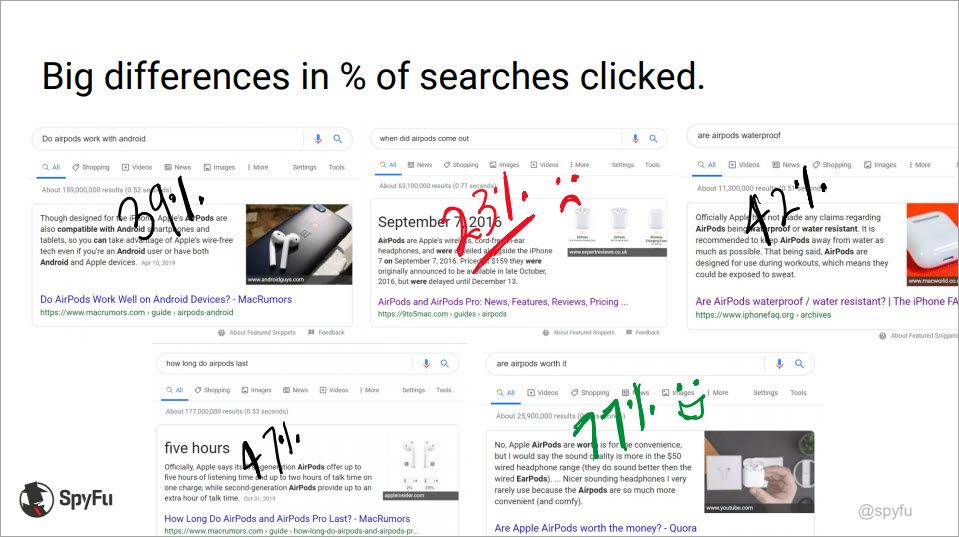The way we rely on searches in our everyday lives has created a massive shift in keyword strategy.
People changed how they interact with search results. We're leaning on technology and adapting our behavior. Think of how easy it is to get an answer to things we used to remember. Sometimes Google serves up the answers so well that the searcher never has to click a thing on the page. That's not the end of the world for search marketers, though.
Watch this informative webinar for details on how these developments are leaving a ton of opportunity on the table. (Slide deck at the end of this post.)
Other topics covered in this webinar:
- Which searches tell you that people are ready to buy or sign up
- Which searches never get clicked--and what that means to your content
- How to extend the life of content so it keeps working for you
- How to work with the rise of Featured Snippets

Next Generation Metrics
"Number of Clicks" is better than "Search Volume."
Search volume has been a sacrosanct metric for so long, but does it deserve that status? We think an update is in order. Look for more effective metrics that give you a stronger sense of what's happening with that search.
Search volume was always the standard "starter" metric that people relied on to determine a keyword's popularity. That turned into a habit, even though there are better ways to decide if a keyword is worth pursuing.
That's where metrics like "number of clicks" come in. If we ask a series of questions about a keyword, we can drill into more helpful answers:
How many people search for it? --> How many people click any result once they get there?
In the webinar, we look at examples where that makes a big difference.

Two related search terms with significantly different volumes: search volume by itself can be a misleading metric.

You'll start looking at metrics with a new lens. Ask yourself what the metrics really tell you and what you can do with them. Watch the video for more ideas like:
- Of all clicks, what percentage went to ads?
- Does this keyword get more mobile searches than other keywords do? What does that mean for your content?
- What questions are people asking about this keyword that I could answer?
- What can I do when some searches end with no clicks at all?
You have ways to answer all of these questions, and for the most part, those answers are free. More important, these metrics and stats should work in tandem.
When you put all of these metrics together, you get more context about how searcher behave with this search term and how you can optimize for it.
No one researches keywords for fun. We're on the hunt for opportunities and guidance. If you can adjust your approach to keyword research and adopt more meaningful metrics, you can make smarter decisions about your strategy.
***
Oh, and in an out-of-context, surprisingly relevant follow-up to this webinar: the latest word is that (thanks to an update in 2020) Jango Fett was a Mandalorian. --sc Even though it's not a race...
Slide deck:

